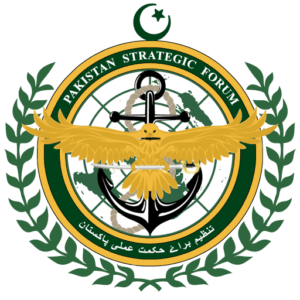After years of continued efforts of both civilian and military leadership, this year (2022) Pakistan is set to be removed from FATF grey list. In an official announcement from FATF, Pakistan has completed the implemented of all 34 points of recommended action plan and now Pakistan will be removed from list after a standard onsite visit around (Sep-Oct 2022) by FATF designated team. This news is massive cause for celebration for the nation as not only will this open up economy to outside markets but also deterred an India attempt to have Pakistan placed on blacklist which could have resulted in Iran / North Korea level sanctions being placed upon Pakistan. To understand the amount of effort that went into achieving this state of affairs first a small background must be delved upon.
It all started when Pakistan was first placed upon FATF gray list in 2018 under heavy Indian lobbying and accusations of failing to check money laundering leading to terror financing. Pakistan from the beginning has displayed high-level political commitment to work with the FATF and APG to address the terrorism financing issues. Pakistan was first given 27 action recommendations within 2018 action plan, out of which 26 were successfully implemented. In a later evaluations 7 more action items were recommended out of which Pakistan had completed 6 demonstrating Pakistan’s commitment to combating terrorism and willingness to cooperate with international organizations for sustainable peace. By 2020 Pakistan had achieved higher transparency and introduced more security measures in anti-terror financing than those lobbying against it, prime example being India. This was a clear sign that FATF was being politicized and Pakistan launched official diplomatic missions to protest this misuse of power.
Regardless Pakistan had made great leaps within creating a more secure financial environment, credit of which goes to both the civilian leadership who brought various reforms within financial system and armed forces who combated various terror elements, ultimately destroying their lines of communication and funding. Finally, as a result of all these efforts and diplomatic support from close allies, Pakistan has been removed for FATF grey list. This is great news for Pakistan’s economy which has seen unstable fluctuations recently and will fully bring Pakistan back within the international market without threat of sanctions.
Efforts by Government of Pakistan
Pakistan’s civilian leadership over the last few years has made considerable efforts to meet FATF conditions and have Pakistan removed from FATF’s grey list. These measures include improvement and creation of new financial traffic supervision systems which help the government keep a keen eye upon funding processes potentially being used for illegal activities. The government additionally improved access to financial intelligence for state institutions and a few select international bodies for more transparency. The civilian leadership also introduced and started enforcing sanctions upon entities connected to banned organizations and increased security on flow cross border funds. Furthermore, the government also introduced many changes within the overall financial system of the country which allows for greater transparency and monitoring by government with the intended intent of cracking down on illegal funding which will not only reduce organized crime/terrorism but also improve overall economic planning. All this included with the diplomatic missions launched by government and help from allies, Pakistan was able to secure consistent good evaluation and finally managed to start the process to jump out of grey list.
Efforts by Pakistan Military
While the efforts of civilian leadership played an instrumental role in building the nail for Pakistan’s case on removal from FATF Grey list, the efforts of armed forces were the hammer that struck the nail right into the heart of terror financing within Pakistan and made removal from grey list possible. The most direct contribution of armed forces is providing necessary specialist support to government at its own request, which helped in creating the action plan that ultimately would resolve the FATF points. As the threat of getting blacklisted due to foreign lobbying was a big threat to Pakistan, it was deemed necessary that all elements within the state cooperate, hence at the directions of Chief of Army staff at GHQ a special Cell was established at Military operations Directorate. This cell worked day and night to coordinate and interlink 30 different departments of Pakistan with the aim to have carefully planned out action plan implementation a success. Some of the significant things that occurred due of these actions are listed below:
- Reporting cycle showed a significant increase in the number and value of assets seized, with 71% of assets being seized and 85% of assets being valued
- Pakistan enacted the Standalone Money Laundering Act (2020) with informal / formal legal assistance and acted on 26,630 complaints
- FBR established a Special Directorate for Non-Financial Businesses (DNFBP) directorate to monitor the compliance of AML Anti-Money Laundering and Counter Traffic Financing (CFT) by real estate agents and jewelers. The FBR completed offsite surveillance of more than 1,700 different illegal businesses, as well as bringing the real estate sector under the purview of the law
- The Securities and Exchange Commission of Pakistan (SECP) also completed enforcement action. Securities and Exchange Commission of Pakistan reviewed 146,697 cases and imposed fines of Rs 2,388 million.
- Money laundering (ML) research increased by 123% in the last one year and provided a comprehensive strategy for terrorist financing (TF) and targeted financial sanctions (TFS) by federal and provincial authorities.
Meanwhile the armed forces also played the indirect role of eliminating direct and physical lines of communication and funding for banned terrorist organizations. Multiple intelligence based military operations over the years have crippled financial meeting points, storage hide outs and sleeper cells. It was Military intelligence efforts that kept monitoring financial lines of communication and helping government enforced security measures remain effective. Meanwhile security personnel deployments across strategic choke points made it increasingly difficult for terror elements to make use of any terror funding they could get their hands upon. Furthermore, the border fencing project being undertaken by Armed Forces played a massive role in disrupting physical lines of financial supply routes with terror funding intent.
To sum it up while government played a big role on the administrative and diplomatic level, it was the efforts of the armed forces that conducted the role of planning and coordinating various departments within Pakistan for implementation of action plan, at the same time it was armed forces that brought physical change on the ground in curbing terror funding and improving financial security within Pakistan. As a result, Pakistan was able to display results, gain positive response from FATF ultimately deterring against years’ worth of Indian lobbying and getting Pakistan removed from grey list.
#BlitzFalcon
#TeamPakistanStrategicForum







